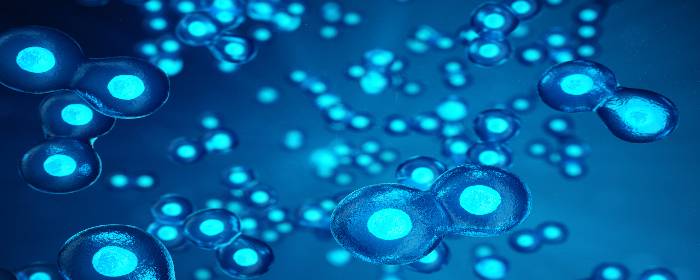An ischemic stroke is a devastating event. An ischemic stroke is caused when a blood clot blocks blood flow to a portion of the brain. If the blood cannot deliver oxygen and nutrients, brain cells in the affected area die. Whatever functions that area of the brain once performed are now lost—brain cells do not regenerate the same way as other cells do.
Not surprisingly, researchers are trying to find ways to restore dead brain cells so that patients can regain function. Stem cells are one of the most promising options in this pursuit. Stem cells can reduce brain damage caused by ischemia (lack of blood flow, nutrients, and oxygen). Moreover, stem cells can help animals with stroke regain neurological function.
Scientists have wondered, however, whether mesenchymal stem cells taken from the umbilical cord can achieve the same effects. Umbilical cord tissue is plentiful and the cells taken from the umbilical cord have many incredible properties.
Dr. Zhang and researchers in his group extracted mesenchymal stem cells from umbilical cord tissue collected from humans. This umbilical cord tissue is usually thrown away after a baby is born, but researchers have been collecting this material because it is rich in mesenchymal stem cells. The researchers then created ischemic strokes in rats by blocking one of the arteries to the brain. They then used stem cells to try to block the damaging effect of stroke in these rats.
The stem cells were given to the rats intravenously. The stem cells moved from the bloodstream into the brain and collected in the area of the stroke. Some of the stem cells actually became new brain cells in the damaged area. Moreover, rats treated with stem cells had better physical functioning than animals who did not receive stem cell treatment.
While this study was performed in rats, the implications for humans are profound. This work shows that mesenchymal stem cells taken from the umbilical cord are capable of improving function after stroke. This is exited news since it is much easier to obtain stem cells from umbilical cord tissue that it is from bone marrow (which requires an invasive procedure).
Reference: Zhang, Lei et al. (2017). Neural differentiation of human Wharton’s jelly-derived mesenchymal stem cells improves the recovery of neurological function after transplantation in ischemic stroke rats. Neural Regeneration Research. 2017 Jul; 12(7): 1103–1110.


 St. Petersburg, Florida
St. Petersburg, Florida
